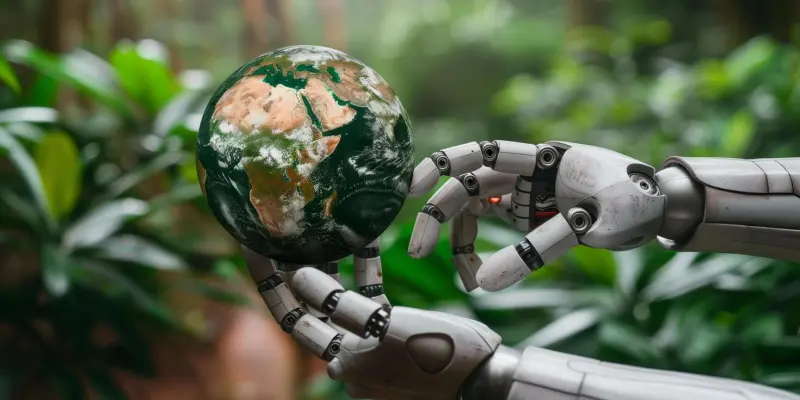The increasing need for sustainable industrial practices has put immense pressure on manufacturing sectors to adopt innovative solutions. Green manufacturing, aimed at minimizing environmental impact, is at the forefront of this movement. Recently, robotics automation has emerged as a significant enabler in this transformation. Advanced robotics technology, integrated with cutting-edge green practices, is setting new benchmarks in efficiency and sustainability.
The Role of Robotics in Enhancing Efficiency
Robotics automation has significantly increased operational efficiency in green manufacturing by handling tasks with unparalleled precision and speed. For instance, in the partnership between global recycling leader GEM and SEER Robotics, 27 advanced robots were deployed to manage the entire production line. The outcome of this integration was a notable reduction in labor costs by 50% and a doubling of overall efficiency. Robots also excel in task accuracy, achieving rates as high as 99%. These machines can operate continuously, reducing downtime and ensuring that production is both steady and reliable.
Additionally, the robots used in GEM’s facilities are equipped with real-time data uploading capabilities and integrated weighing sensors. These features enhance the Manufacturing Execution and Evaluation System (MEES), providing better visibility and control over production quality. Furthermore, their compatibility with modern battery systems means these robots can function almost perpetually, minimizing interruptions and enhancing throughput. This blend of advanced robotics and intelligent systems lays a robust foundation for more scalable and sustainable manufacturing processes globally.
Promoting ESG-driven Industrial Transformation
Robotics automation is not only about increasing efficiency but also plays a crucial role in promoting Environmental, Social, and Governance (ESG) targets. By integrating robotics into the production lines, companies can significantly reduce their carbon footprints and advance towards zero-waste manufacturing objectives. GEM’s collaboration with SEER Robotics stands as a testament to how human-machine collaboration can propel industries toward greater sustainability, lowering energy consumption and minimizing waste production.
One of the notable features of this robotic system is its user-friendliness. Designed to be intuitive, these robotic systems require minimal training for frontline employees, which makes the technology accessible and operational from the get-go. This ease of use facilitates a smoother transition from traditional methods to automated processes, helping factories adapt quickly and efficiently. The emphasis on ESG-driven objectives ensures that these advancements benefit not just the company but also the broader community by fostering more environmentally responsible practices.
Setting a Global Benchmark for Sustainable Production
The growing need for sustainable industrial practices is putting significant pressure on manufacturing sectors to implement innovative solutions. Green manufacturing, which focuses on reducing environmental impact, is leading this movement. One major development has been the introduction of robotics automation as a pivotal element in this transformation. These advanced robotics technologies, when combined with leading-edge green practices, are setting unprecedented standards for efficiency and sustainability. With the integration of smart systems and eco-friendly practices, industries are now able to enhance productivity while dramatically reducing their carbon footprint. Robotics automation not only streamlines operations but also ensures minimal waste and maximum resource utilization. The synergy between robotics and green manufacturing represents a revolutionary shift, promising a future where industrial growth and environmental conservation can coexist harmoniously. This transformation is crucial for achieving long-term sustainability goals, suggesting that the next era in manufacturing will be defined by intelligent, eco-conscious innovations.

